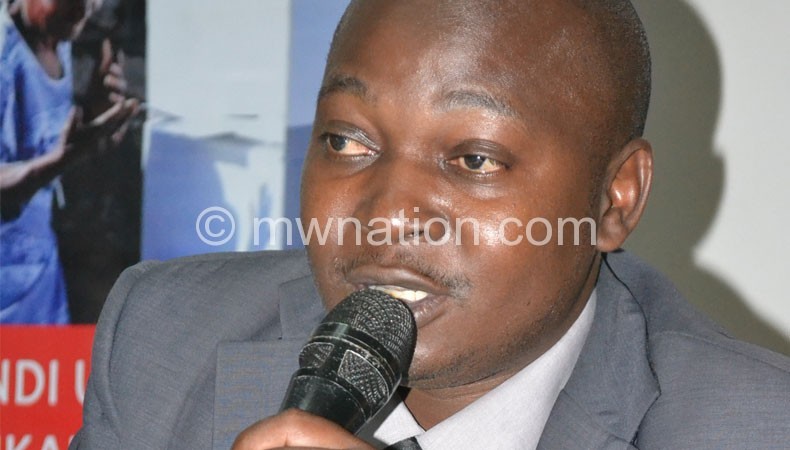Greasing wheels of Malawi 2063
This year, Malawi clocked 30 years of democracy and re-introduction of plural politics which was adopted through a referendum in 1993 that ushered in the 1994 general elections.
The advent of democracy called for the need for a re-education process for Malawians to have shared information and values on the requirements of the new political system that ended the 31 years of dictatorship.

In this endeavour, there was a vibrant civil society that emerged to provide civic education to the Malawian populace.
But a number of experiences quickly came to the fore in the exercise of providing civic education.
According to the National Initiative for Civic Education (Nice) Trust executive director Gray Kalindekafe, civic education at that time was mostly theme-based and about human rights, mostly without equal emphasis on corresponding duties and responsibilities.

He says: “The other challenge was that the geographical coverage by the civic educators was mostly limited to urban and peri-urban locations. At the same time, those that went into the interior of the country were not providing continuous civic education.
“Additionally, most of the civic education was understood as political education being done in a top-down and non-participatory manner. People’s re-orientation towards the new democratic dispensation was missing as there was no attitude change.”
Largely, Nice, which started as a project in 1999, was established to offset these challenges.
Says Kalindekafe: “We were to contribute towards the strengthening of the democratic process and good governance by providing countrywide civic education in a participatory, non-partisan, professional and permanent manner.
“We were also charged with the responsibility of providing civic education that would facilitate behavioural and attitude change and mobilise Malawians for participation in public life, including elections.”
In March, 2012, Nice changed into a Public Trust with an aim to make the institution live forever and, impliedly, make civic education sustainable.
Malawi has experienced various emerging issues whose solution has been civic-education interventions.
Recent examples include health emergences such as the Covid-19 pandemic and cholera outbreak. In both cases, it has been a tall order to convince Malawians to get vaccinated.
From a human rights perspective, the country has experienced ugly violent scenes where the elderly have been lynched on suspicion that they practise witchcraft.
On the other hand, there have been incidents of killing of people with albinism for purposes of conducting rituals, mystifying wealth and healthcare interventions.
“Generally, there are many issues in the country requiring sustainable civic education interventions,” Kalindekafe says.
The Department of Civic Education in the Ministry of Local Government, Unity and Culture has started establishing civic education hubs across the country to complement civic education efforts meant to inculcate a new culture of thinking and doing things for the speedy realisation of the Malawi 2063.
Broadly, the department is charged with the responsibility to coordinate and regulate civic education services and promote national peace and unity through the enforcement of civic education policies, shared public interests and values. It is also mandated to support collaborative peace-building and conflict-management interventions for national development.
According to Misheck Munthali who is director of Civic Education in the Ministry, the hubs are an effort to make civic education sustainable and responsive to diverse challenges which are community-specific.
“We are establishing these hubs at three levels –district, traditional authority and in schools. Ideally, they are expected to identify issues requiring transformative civic education and then conduct evidence-based civic education using local approaches on topical and emerging issues.
“The district hubs will monitor and supervise the lower level hubs, ensure that civic education guidelines are adhered to and that people are being given correct messages,” says Munthali.
At school level, he explains the hubs will operate as voluntary clubs with a teacher as patron. The idea is to create communities that are civically empowered and that actively participate in national development.
Munthali points out that MW2063’s overarching pillars of agricultural productivity and commercialisation, industrialisation and urbanisation stipulate that efforts to transform Malawi into a middle income economy hinge on mindset change which requires sustainable civic education.
He says this will enable citizens to engage various duty-bearers responsible for national development in line with the aspirations of MW2063.
The Department of Civic Education, according to Munthali, has a huge task to streamline activities that will help in the realisation of MW2063 which seeks to see Malawi graduate from a low-income and donor-dependent country to a middle-income and self-reliant nation.
“Our vision is to create an engaged, patriotic, knowledgeable and empowered citizenry for a transformative, peaceful, united, prosperous and just society. That means our work is so pivotal to the realisation of the aspirations of MW2063 which largely hinge on the mind-set change enabler—the mainstay enabler in the realisation of MW 2063,” he explains.
He says in that regard, everyone will be engaged, including students as the schools will also establish civic education hubs operating as voluntary societies.
“The ministry seeks to have a united, patriotic and proud people that believe in their own abilities and are active participants in building the nation towards its development agenda. This initiative is one of the interventions for inclusive participation in national development,” Munthali says.
So far, eight hubs have been established across the country as a pilot project. In Kasungu, the initiative is being piloted in Traditional Authority Kaluluma’s area.
Welcoming the initiative, Kaluluma says civic education must be sustainable and be community- specific, considering that each community has its own dynamics.
He says: “We are happy, firstly, because we have been chosen as a pilot site for this initiative and secondly, because we understand that many of our challenges require civic education.
“Most of the issues we are battling with in our villages require civic education. So, this is the right direction that we have taken,” says Kaluluma.
Kasungu District Council director of planning and development Annie Zimba says the council will do its part to ensure that hubs are successful. He, however, stressed the need to train members.
“We welcome this idea and we are ready to support it. My plea is that the structures must be properly trained so that they know their terms of reference,” she says.
The hubs are expected to supplement the efforts of over 12 000 Nice para-civic educators and coordinators spread across the country.





